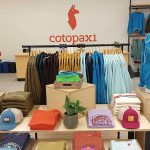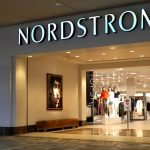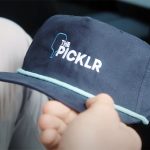Helen of Troy Limited reported sales in its Housewares segment, which includes Hydro Flask and OXO, increased 20.3 percent in the second quarter ended August 31 to $167.9 million. The gains primarily reflected higher demand for OXO brand products as consumers spent more time at home cooking, cleaning, organizing and pantry loading in response to COVID-19, an increase in online sales for both OXO and Hydro Flask, higher sales in the club channel, growth in international sales, and new product introductions.
These factors were partially offset by the COVID-19 related impact of certain retail brick and mortar store closures and reduced store traffic on the Hydro Flask and OXO brands. The gains reflected an organic business increase of 20.2 percent.
Operating income in the Housewares segment increased 27.2 percent to $45.4 million, or 22.5 percent of segment net sales, compared to $35.7 million, or 21.3 percent of segment net sales, in the same period last year. The 1.2 percentage point increase in operating margin was primarily due to the favorable impact that higher overall net sales had on operating leverage, a more favorable channel mix, and cost reduction initiatives including temporary personnel, advertising and travel expense reductions due to the uncertainty of COVID-19. These factors were partially offset by a less favorable product mix, higher performance-based annual incentive compensation expense, higher freight and distribution expense to support strong demand and increased customer chargeback activity. Adjusted operating income increased 27.1 percent to $47.8 million, or 23.7 percent of segment net sales compared to $37.6 million, or 22.4 percent of segment net sales, in the same period last year.
Companywide, consolidated net sales revenue increased 28.2 percent to $530.9 million compared to $414.0 million, driven by an Organic business increase of $106.4 million, or 25.7 percent, primarily reflecting growth in consolidated brick and mortar sales, an increase in consolidated online sales, and an increase in consolidated international sales.
Among its other two segments, Health and Home jumped 33.2 percent to $158.8 million and Beauty segment sales increased 34.6 percent to $87.3 million. The Health and Home segment includes Vicks, Braun, Honeywell, and PUR. The Beauty segment brands include Pert, Revlon, Hot Tools, Professional, Infusium, Brut, Bed Head, Sure, and Drybar.
The Drybar Products acquisition contributed net sales of $10.5 million or 2.5 percent of consolidated net sales revenue growth. These factors were partially offset by a net sales decline in Personal Care and the impact of COVID-19 related store closures and lower store traffic at certain retail customers.
Consolidated gross profit margin increased 0.4 percentage points to 43.4 percent, compared to 43.0 percent. The increase is primarily due to a favorable product mix within Health & Home and the Organic Beauty business, the favorable impact of the Drybar Products acquisition, a favorable channel mix within the Housewares segment, lower direct import sales, and lower air freight expense. These factors were partially offset by an unfavorable product mix in the Housewares segment and the unfavorable comparative impact of tariff exclusion refunds received in the prior-year period.
Consolidated SG&A as a percentage of sales decreased by 5.1 percentage points to 24.7 percent, compared to 29.8 percent. The decrease is primarily due to the impact that higher overall sales had on net operating leverage, and cost reduction initiatives including temporary personnel, advertising and travel expense reductions due to the uncertainty of COVID-19. These factors were partially offset by higher performance-based annual incentive compensation expense, increased freight and distribution expense, higher legal expense, and increased customer chargeback activity.
Consolidated operating income was $99.3 million, or 18.7 percent of net sales, compared to $54.5 million, or 13.2 percent of net sales. The increase in consolidated operating margin primarily reflects the favorable impact that higher overall net sales had on operating leverage, a favorable product mix within Health & Home and the Organic Beauty business, a favorable channel mix within the Housewares segment, and cost reduction initiatives including temporary personnel, advertising and travel expense reductions due to the uncertainty of COVID-19. These factors were partially offset by an unfavorable product mix within the Housewares segment, the unfavorable comparative impact of tariff exclusion refunds received in the prior-year period, higher performance-based annual incentive compensation expense, higher legal expense, and increased freight and distribution expense.
Income tax expense as a percentage of income before income tax was 9.6 percent compared to 10.3 percent, primarily due to benefits recognized from the transition of the company’s Macau entity from offshore to onshore status and shifts in the mix of the company’s taxable income in its various tax jurisdictions, partially offset by increases in liabilities related to uncertain tax positions.
Net income was $87.3 million, or $3.43 per diluted share on 25.5 million weighted average diluted shares outstanding, compared to $46.1 million, or $1.83 per diluted share on 25.2 million weighted average diluted shares outstanding.
Adjusted EBITDA (earnings before interest, taxes, depreciation, and amortization) increased 62.5 percent to $113.4 million compared to $69.8 million.
On an adjusted basis for the second quarter of fiscal 2021 and 2020, excluding restructuring charges, non-cash share-based compensation, and non-cash amortization of intangible assets, as applicable:
Adjusted operating income increased $42.7 million, or 64.9 percent, to $108.5 million, or 20.4 percent of net sales, compared to $65.8 million, or 15.9 percent of net sales. The 4.5 percentage point increase in adjusted operating margin primarily reflects the favorable impact that higher overall net sales had on operating leverage, a favorable product mix within Health & Home and the Organic Beauty business, a favorable channel mix within the Housewares segment, and cost reduction initiatives including temporary personnel, advertising and travel expense reductions due to the uncertainty of COVID-19. These factors were partially offset by an unfavorable product mix within the Housewares segment, the unfavorable comparative impact of tariff exclusion refunds received in the prior-year period, higher performance-based annual incentive compensation expense, higher legal expense, and increased freight and distribution expense.
Adjusted income increased $39.4 million, or 69.7 percent, to $95.9 million, or $3.77 per diluted share, compared to $56.5 million, or $2.24 per diluted share. The 68.3 percent increase in adjusted diluted EPS was primarily due to higher operating income in all three business segments, partially offset by higher income tax expense and higher weighted average diluted shares outstanding.
Julien R. Mininberg, chief executive officer, stated: “We delivered outstanding results in the second quarter. Our diversified brand portfolio provided trusted solutions to consumers amidst the global pandemic and the devastating wildfires in the western United States. I am very proud of our associates around the world, who perform at an elevated level every day as the resilience of our business, organization, and culture continues to be tested and confirmed. Sales growth was 28.2 percent and adjusted diluted EPS growth was a robust 68.3 percent for the quarter. Our Leadership Brands performed extremely well, with sales growing 30.3 percent, including 3.2 percent growth from Drybar. All three of our business segments and international grew more than 20 percent in the quarter. Health & Home led the way with 33.1 percent organic sales growth, propelled by its health-related Vicks, Braun, PUR, and Honeywell products that are there for consumers when they are needed most. Housewares Organic sales increased 20.2 percent with OXO continuing to thrive amid the home nesting trend, Hydro Flask returning to growth in the quarter, and excellent international growth for both brands. Organic Beauty sales grew 23.0 percent as our One-Step volumizer franchise grew sharply in the U.S. and Internationally. Drybar contributed an additional 12.1 percent sales growth to Beauty. The online channel continues to be a powerful growth driver as the pandemic accelerated consumer preference for clicks over bricks. Online sales grew 32 percent to now represent 24 percent of our total sales. All told, the first half of our fiscal year marked an excellent start to the second year of Phase II. First-half sales grew 20.4 percent, adjusted diluted EPS grew 46.5 percent, and we generated $186 million of cash flow from operations.”
Mininberg concluded: “The combination of winning first-half results and strong prospects for the remainder of the fiscal year allow us to plan further investment in our most important Phase II initiatives during the second half of our fiscal year. We are very pleased to be in a position to do so, as we believe these strategic investments will continue to power our multi-year transformation. While we are highly encouraged by the resiliency and strength of our business, the unpredictability of the pandemic’s impact on consumer demand, its strain on our supply chain and distribution capacity, and its impact on the effectiveness of brand spending continue to cause a high degree of forecast variability that makes us unable to provide financial guidance for fiscal 2021 within a reasonable range at this time. As we navigate the uncertainty of the current environment, we will continue to focus on longer-term opportunities to continue driving our value creation flywheel.”
Balance Sheet and Cash Flow Highlights
- Cash and cash equivalents totaled $148.4 million, compared to $17.0 million.
- Accounts receivable turnover was 68.7 days, compared to 68.4 days.
- Inventory was $350.2 million, compared to $370.9 million. Trailing twelve-month inventory turnover was 3.3 times compared to 2.9 times.
- Total short- and long-term debt was $300.1 million, compared to $301.2 million.
- Net cash provided by operating activities for the first six months of the fiscal year was $186.3 million, compared to $38.2 million.
Executive Leadership Updates
The company announced today that its CEO, Julien R. Mininberg, intends to extend his employment with the company through February 29, 2024. The company and Mininberg are working to finalize an amended employment agreement.
The company also announced that Chief Financial Officer Brian L. Grass intends to retire to pursue entrepreneurial interests and will step down from his position effective November 1, 2021, after more than 15 years at the company and more than seven years in the CFO role. Grass stated: “I have put aside my entrepreneurial interests for almost my entire career and I have reached a point where I can explore these interests in a financially responsible way, while still being young enough to do it. I am proud to say that the company has never been stronger financially, operationally, and strategically, and I believe the best is yet to come. I’m also proud that we have developed strong internal CFO succession talent, whom we will continue to groom over the next year. The company also intends to conduct an external search to ensure the best possible succession for Helen of Troy. I want to thank Julien, the Board of Directors, our Global Leadership Team, and the company’s finance organization for allowing me to be a part of this amazing journey. It is a gift to be entrusted with the responsibility of leading a company like Helen of Troy, and I am truly grateful. I look forward to working with Julien over the next year to ensure the smoothest possible transition for the company.”
Mininberg stated: “I would like to thank Helen of Troy’s Board of Directors for their continued faith in me. I believe there is considerable opportunity ahead for continued growth of our revenues, profitability, brand portfolio, global footprint, and capabilities. I am honored not only to provide continuity of leadership through the remaining three and half years of Phase II of our Transformation Plan but also to lead the company through all ten years of Transformation, beginning in 2014 with the start of Phase I. I look forward to stewarding the company through the end of fiscal year 2024 and through succession planning for the next generation of leaders.”
“Brian is a valued partner to me and our Global Leadership Team. I greatly appreciate his expertise, integrity, high standards, and countless contributions advancing our evolution into a company that is built to last. Over the next year, he will continue to remain fully in his current role, providing highly effective executive management and financial governance, and will assist with a seamless transition when the time comes. Our search will be comprehensive, including outstanding internal talent and external candidates, as we seek a successor CFO that can provide the outstanding level of financial leadership we are accustomed to and continue to help us deliver on our Transformation.”
Fiscal 2021 Business Update
Due to the evolving COVID-19 pandemic and related consumer and business uncertainty, the company is not providing an outlook for fiscal 2021 at this time. In addition to the lack of visibility into consumer demand and the uncertain impact of COVID-19 on the retail environment, trends are emerging that may impact the company’s ability to fulfill some orders on a timely basis or make marketing investments with an acceptable return, all of which have a significant impact on the company’s ability to forecast within a reasonable range.
As previously disclosed, during the first quarter of fiscal 2021, as part of a comprehensive approach to preserve its cash flow and adjust its cost structure to align to lower anticipated revenue related to the business disruption and uncertainty of COVID-19, the company implemented a number of temporary precautionary measures. Based on stronger than expected performance, the company reversed a number of these measures toward the end of the second quarter of fiscal 2021, including a restoration of all wages, salaries, and director compensation to pre-COVID-19 levels. In addition, towards the end of the second quarter the company also selectively increased levels of investments in certain marketing activities, new product development and launches, and capital expenditures. During the remainder of the fiscal year, the company is planning to continue to increase its marketing and other growth investments.
The company continues to see very strong demand trends in many of its product categories. In the second quarter of fiscal 2021, demand continued to outpace even recently increased supply capacity with respect to thermometry, air filtration, water filtration and various products within Housewares, which in some cases is resulting in out of stocks. Surges in demand and shifts in shopping patterns related to COVID-19 have strained the U.S. freight network, which is resulting in carrier delays. In addition to Housewares sales growth of 14.1 percent and 22.4 percent in fiscal years 2019 and 2020, respectively, demand has further surged for the OXO brand, which in combination with carrier delays, has caused order flow to outpace shipping capacity in the company’s distribution center. In some cases, this is resulting in out of stocks at retail for some OXO items. While the company has moved quickly to bring additional distribution and storage facilities online in support of surging order volume and higher targeted inventory holdings heading into our peak selling season, it believes there could continue to be some level of out of stocks in certain parts of its business.
Not only do these trends impact the company’s ability to accurately forecast revenue, but they can also limit the company’s ability to make marketing expenditures with an adequate return on investment. In certain categories, where macro-trends like COVID-19 are driving demand significantly higher than historical levels or in situations where supply or distribution is capacity constrained, the company believes that driving additional demand through incremental marketing activities could compound potential shipment delays or out of stocks. In these situations, currently planned marketing investments designed to drive incremental short-term demand would not be made.
The company believes these factors could contribute to a wide variation of outcomes with respect to the company’s adjusted diluted EPS for the remainder of the fiscal year. The company’s base plan is to make the majority of the incremental marketing investments that were planned at the beginning of the year and that the company believes are best for the long-term health of its brands. If the company is able to execute against its base plan, the company would expect adjusted operating margin for the full fiscal year to expand by approximately 0.2 to 0.4 percentage points compared to fiscal 2020. If current demand trends continue and the company is not able to execute against its base plan, the company estimates adjusted operating margin could expand by as much as 0.8 to 1.6 percentage points for the full fiscal year compared to fiscal 2020. As a result, the company estimates there could be as much as $0.50 to $1.00 of adjusted diluted EPS variability just from marketing investments that are planned for the second half of the fiscal year, but may not be made due to an unacceptable return on investment, capacity constraints or a lack of visibility. This range does not include the additional potential revenue variability from COVID-19.
Photo courtesy Helen of Troy/Hydro Flask
















